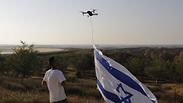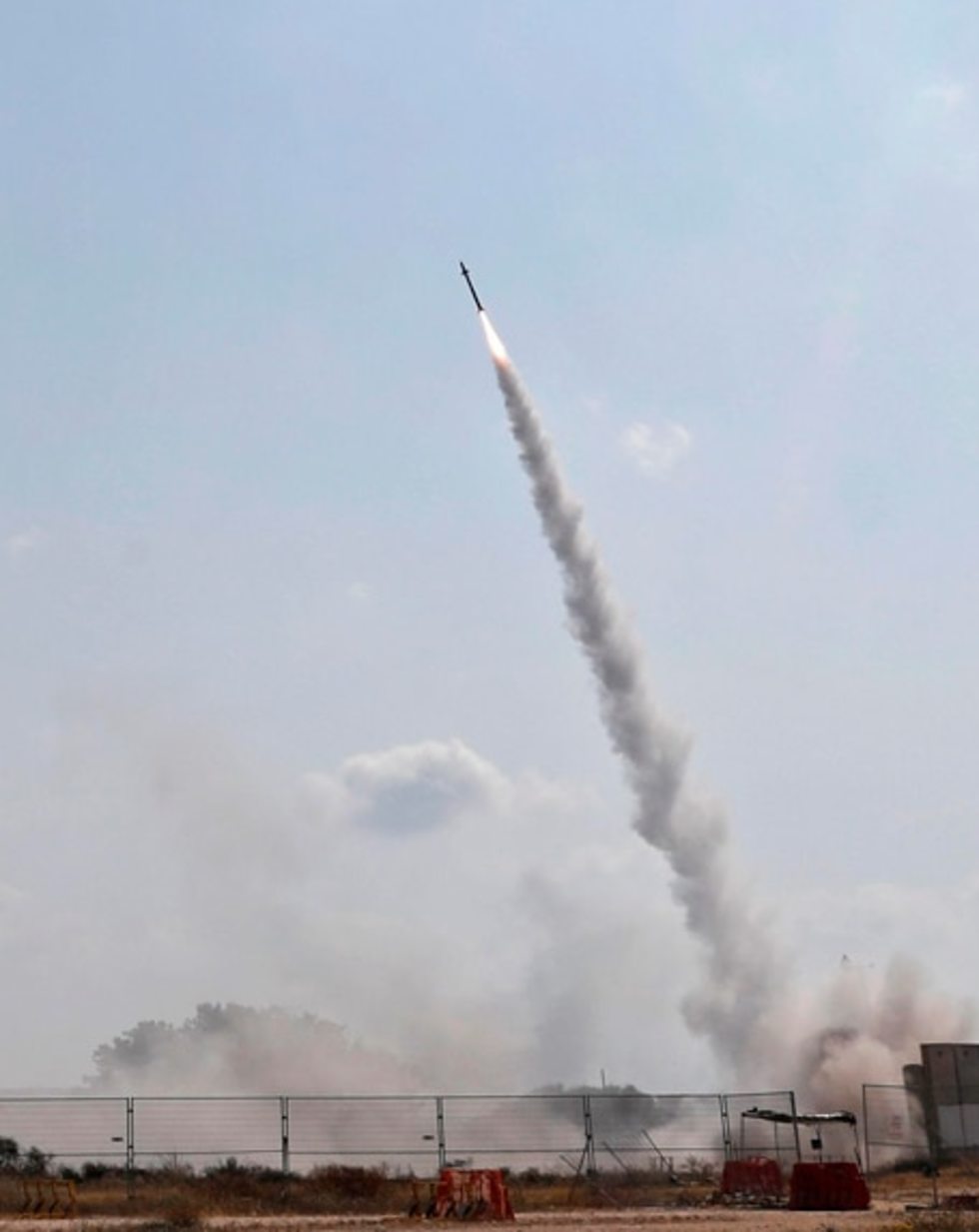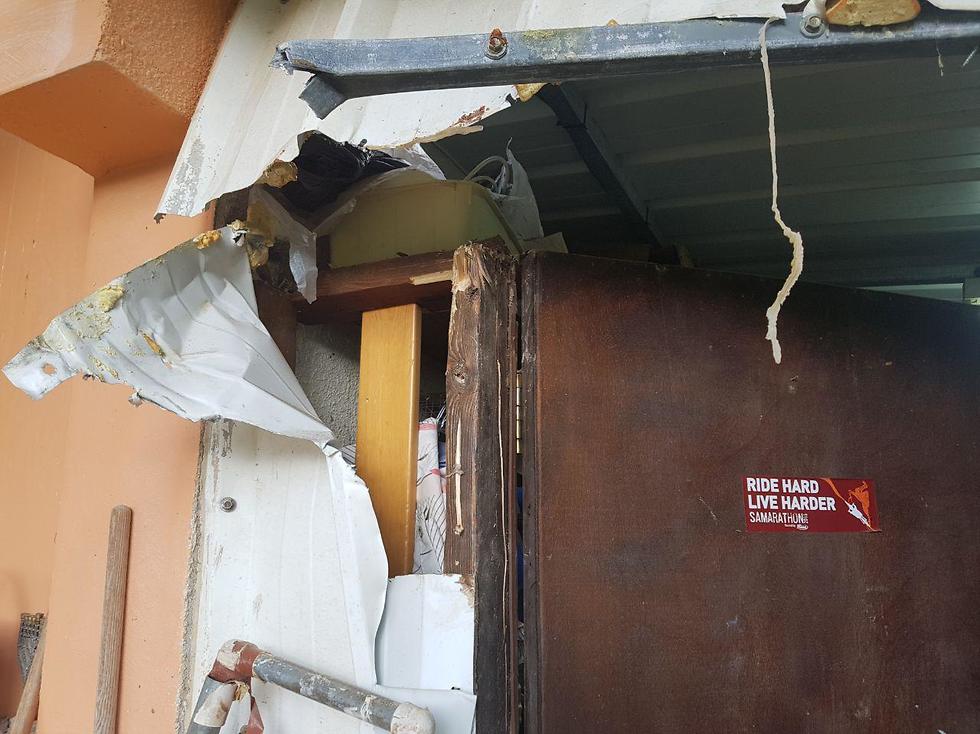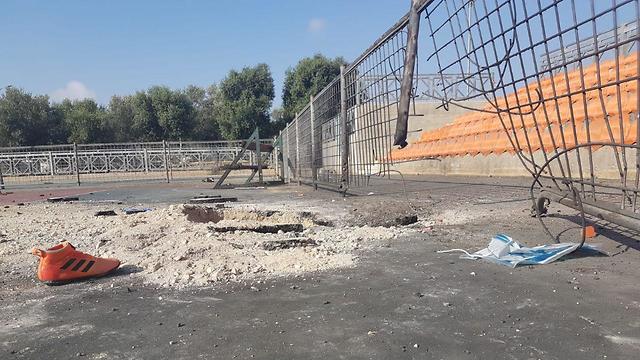
The full story behind the understandings for a truce in Gaza
Analysis: Israel turned down Palestinian organizations’ demand to issue official statement on ceasefire Tuesday evening, insisting that ‘calm will be met with calm.’ Hamas and Islamic Jihad kept firing rockets, but after IDF strikes in Gaza left no casualties, they informed Egypt they were prepared to halt fire. Rockets fired after 1 am were launched by small ‘rebel’ organizations.
The only thing that was achieved Tuesday night was understandings between the two Palestinian organizations and Egyptian intelligence officials. The Palestinians pledged to unilaterally halt the rocket fire, hoping that Israel would follow the “calm will be answered with calm” principle. The story behind these understandings is fascinating and explains the events of the past 24 hours.
This was the chain of events: On Tuesday morning, Islamic Jihad started firing mortar shells at Israel. Concerned about its prestige, Hamas joined the rocket fire after the IDF struck in the Gaza Strip for the first time. In the afternoon, when the exchanges of fire continued, the IDF lowered its level of response by moving to tank shells. The Egyptians spotted the opportunity and suggested that the Hamas and Jihad leaderships, with whom they are in regular contact, halt the rocket fire.
The Egyptian intelligence officers likely told the Gazans in the early hours of Tuesday evening that according to Israel’s regular policy, if the Palestinians avoid firing rockets and trying to infiltrate Israeli territory, Israel won’t initiate any attacks.
After consulting each other, Hamas and Islamic Jihad informed the Egyptians that they wanted an explicit statement about a truce from Israel and the IDF. They need this statement to show their audiences that a new situation had been created—a mutual deterrence between equals. This false impression is aimed at covering up their failures in the past few weeks in the “marches of return” and in terrorist cells’ attacks on the border fence.
Painful but tolerable
The Egyptians didn’t get Israel’s approval for Hamas’ demands. Cairo has a double interest in preventing an escalation in the strip: One, to allow Egypt to fight the Islamic State in Sinai while Hamas stops the “rebel” ISIS activists in the strip from helping their friends in Sinai; two, to prove that the Egyptians have a real influence in the strip and gain prestige in the Arab world and in the international community.
Jerusalem refused to play the game and informed Cairo that Israel wouldn’t reach any understandings with Hamas and Islamic Jihad as long as they kept firing. Israel would stop striking in the strip only after a calm is achieved.
The Palestinian organizations were furious. In response, they launched dozens of rockets and mortar shells in the evening and in the night, sending the Gaza vicinity residents into their safe rooms. An Iranian-made rocket exploded in a soccer field in Netivot and another rocket hit a storage shed in the Eshkol Regional Council, but most of the rockets and mortar shells were intercepted by the Iron Dome system.
The IDF, in accordance with pre-prepared plans that had already been presented to the cabinet, increased its response level and attacked dozens of targets in the strip on Tuesday night. Like the previous strikes in the middle of the day, the night attacks were directed at Hamas and Islamic Jihad military posts, to give the terror organizations an opportunity to halt the rocket fire without suffering any casualties.
The IDF is well aware of Hamas and Islamic Jihad’s regular drill: As soon as they open fire, they remove their people from their facilities and headquarters, knowing they would be targeted by the IDF. So the IDF was able to attack important facilities and headquarters of the two organizations, knowing there would be no casualties which would force the Palestinians to escalate the fire. The response was painful but tolerable, as far as the Palestinians were concerned, as they didn’t suffer any losses.
And then, at around 1 am, they informed the Egyptians that they were prepared to unilaterally halt the fire, assuming Israel would stick to its “calm will be answered with calm” policy. The Egyptians gave Israel the message, and the IDF announced that schools would be opened as planned in the Gaza vicinity on Wednesday morning.
The rockets fired after 1 am were launched by small “rebel” organizations. Since then, Hamas has been making efforts to stop them from firing.
IDF demands ease of restrictions in Gaza
It’s important to know that the course of events, both in the military area and in the talks behind the scenes between the Egyptians and the Palestinians, is the result of an IDF plan accepted by the Israeli cabinet. According to this plan, any rockets or shots fired at Israeli territory will be met with responses from the IAF, the ground forces and the Navy, and the damage they will inflict on Hamas and Islamic Jihad will grow gradually.
The IDF has reached the conclusion that in its war on terror organizations it must maintain the ability to gradually escalate its response, so it isn’t forced to enter another operation in the strip following every exchange of fire.
Like the army, the political echelon believes we have no business in the strip, and we definitely don’t want to control Gaza and take responsibility for two million residents. But a decision has been made in Jerusalem that if the IDF is eventually forced to enter the strip, the Hamas rule will cease to exist, with all that it implies.
Israel has no good alternative at the moment for the Hamas rule in Gaza =, as there is no one to take up the reins there, and an anarchy in the strip could explode in Israel’s face. The IDF is therefore careful not to use all its power and inflict all the damage it is capable of inflicting at once. Instead, the IDF has set “escalation steps” which it is accurately setting in motion in a bid to allow the Palestinian organizations to emerge from the escalation without admitting failure.
That’s exactly what happened on Tuesday. After the second blow that the IDF dealt to Hamas and Islamic Jihad’s facilities, the Gazans realized they had nothing to gain from continuing the rocket fire. They informed the Egyptians that they were halting the fire, knowing that the Egyptians would inform Israel.
But the lull that began Wednesday morning is still fragile, and we mustn’t enter a state of complacency. The IDF has restored its deterrence, but we’ve already seen the Palestinians act despite an existing fragile military deterrence. This is the reason the IDF keeps demanding, with the defense ministry’s support, more active measures on Israel’s part to rehabilitate the Gazan’s humanitarian situation. They need clean water, electricity, sewage and health services, and they need a break from the constant pressure they have been living under, just like the residents of the Gaza vicinity.
So in addition to financial aid, the Gaza Strip needs a long-term political arrangement which will stop Hamas and Islamic Jihad from increasing their military power. It’s not much, but it’s something, and we mustn’t wait for the Egyptians to achieve it. Egypt moves slowly, as we saw in Operation Protective Edge. We must enlist additional elements to achieve such an arrangement and a basic economic reconstruction of the strip.













